Conjugation verb travel
Model : cancel
Auxiliary : have , be
Other forms: travel oneself / not travel
Contractions
in the U.K. spelling we double up the 'l' in preterite and participle endings
The verb has several variants of conjugation, which may correspond to different meanings. Please use the menu to select one or all variants.
- he/she/it travels
- they travel
- I travelled/traveled
- you travelled/traveled
- he/she/it travelled/traveled
- we travelled/traveled
- they travelled/traveled
Present continuous
- I am travelling/traveling
- you are travelling/traveling
- he/she/it is travelling/traveling
- we are travelling/traveling
- they are travelling/traveling
Present perfect
- I have travelled/traveled
- you have travelled/traveled
- he/she/it has travelled/traveled
- we have travelled/traveled
- they have travelled/traveled
- I will travel
- you will travel
- he/she/it will travel
- we will travel
- they will travel
Future perfect
- I will have travelled/traveled
- you will have travelled/traveled
- he/she/it will have travelled/traveled
- we will have travelled/traveled
- they will have travelled/traveled
Past continous
- I was travelling/traveling
- you were travelling/traveling
- he/she/it was travelling/traveling
- we were travelling/traveling
- they were travelling/traveling
Past perfect
- I had travelled/traveled
- you had travelled/traveled
- he/she/it had travelled/traveled
- we had travelled/traveled
- they had travelled/traveled
Future continuous
- I will be travelling/traveling
- you will be travelling/traveling
- he/she/it will be travelling/traveling
- we will be travelling/traveling
- they will be travelling/traveling
Present perfect continuous
- I have been travelling/traveling
- you have been travelling/traveling
- he/she/it has been travelling/traveling
- we have been travelling/traveling
- they have been travelling/traveling
Past perfect continuous
- I had been travelling/traveling
- you had been travelling/traveling
- he/she/it had been travelling/traveling
- we had been travelling/traveling
- they had been travelling/traveling
Future perfect continuous
- I will have been travelling/traveling
- you will have been travelling/traveling
- he/she/it will have been travelling/traveling
- we will have been travelling/traveling
- they will have been travelling/traveling
- let's travel
- travelling/traveling
- travelled/traveled

Perfect participle
- having travelled/traveled
Helping millions of people and large organizations communicate more efficiently and precisely in all languages.
English Grammar Here
Travel V1 V2 V3 V4 V5, Past Simple and Past Participle Form of Travel

Verb; Travel
Meaning; trip, journey, voyage, peregrination, eyre
V1, V2, V3, V4, V5 Form of Travel
Synonym for Travel
- peregrination
- sightseeing
- cultivation
When learning English you need to know the meaning of certain words first, and then sort the words appropriately according to grammatical rules. Verbs in a regular structure can be transformed with a simple rule, whereas in irregular verbs, this situation is slightly different. It may be a good start to make some memorization and learn how to use the verbs in the right places.
Here are Verb Forms v1 v2 v3 v4 v5 pdf
Related Posts
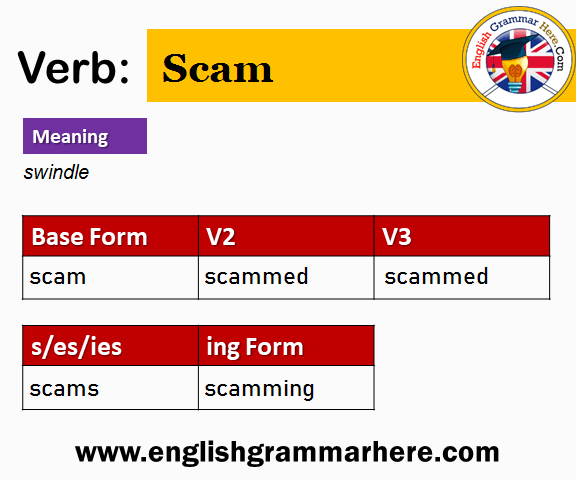
Scam V1 V2 V3 V4 V5, Past Simple and Past Participle Form of Scam
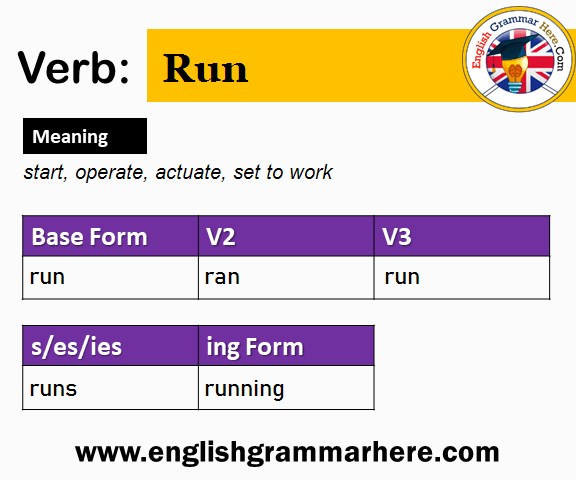
Run V1 V2 V3 V4 V5, Past Simple and Past Participle Form of Run
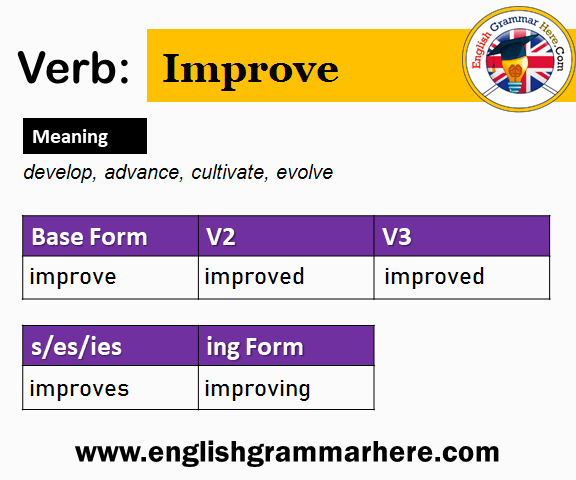
Improve V1 V2 V3 V4 V5, Past Simple and Past Participle Form of Improve
About the author.

Travel Past Tense
Commonwealth travelled, US traveled past tense of travel is Commonwealth travelled, US traveled.
Travel verb forms
Conjugation of travel.
- What is the past tense of tup in English?
- What is the second form of verb TUPE?
- What is the third form of verb turbanize in English?
- What is the conjugation of turbinate in English?
- Conjugate turbocharge in English?
- turkey-trot
PastTenses is a database of English verbs. One can check verbs forms in different tenses. Use our search box to check present tense, present participle tense, past tense and past participle tense of desired verb.

Select your English level
To personalize your experience.
- To Travel Conjugation
In the US the spelling 'traveling' and 'traveled' are preferred.
Continuous Perfect
Conditional.
We notice you're using an ad blocker.
Linguasorb is free and ad supported, without ad revenue we can't exist. Certain features such as audio, directly cost us money and so are disabled for ad block users.
Please disable your ad blocker for this site if you wish to use the premium features.
Alternatively you can become a supporter and remove the ads completely .
Online Language Dictionaries
Perfect tenses, continuous (progressive) and emphatic tenses, compound continuous (progressive) tenses, conditional, subjunctive.
*Blue letters in conjugations are irregular forms. ( example ) *Red letters in conjugations are exceptions to the model. ( example )
Report a problem.
- More from M-W
- To save this word, you'll need to log in. Log In
Definition of travel
(Entry 1 of 2)
intransitive verb
transitive verb
Definition of travel (Entry 2 of 2)
- peregrinate
- peregrination
Examples of travel in a Sentence
These examples are programmatically compiled from various online sources to illustrate current usage of the word 'travel.' Any opinions expressed in the examples do not represent those of Merriam-Webster or its editors. Send us feedback about these examples.
Word History
Middle English travailen, travelen to torment, labor, strive, journey, from Anglo-French travailler
14th century, in the meaning defined at intransitive sense 1a
14th century, in the meaning defined at sense 1a
Phrases Containing travel
- travel agency
- travel light
- travel sickness
- see / travel the world
- travel agent
- travel trailer
- pre - travel
Articles Related to travel

Is it ‘traveling’ or...
Is it ‘traveling’ or ‘travelling’?
A tale of two variants
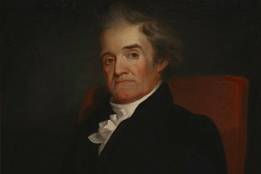
Noah Webster's Spelling Wins and Fails
Some of his biggest successes and defeats

8 Ways to Get Away From It All
Whether it's a jaunt or a junket, remember sunblock.
Dictionary Entries Near travel
Cite this entry.
“Travel.” Merriam-Webster.com Dictionary , Merriam-Webster, https://www.merriam-webster.com/dictionary/travel. Accessed 25 Mar. 2024.
Kids Definition
Kids definition of travel.
Kids Definition of travel (Entry 2 of 2)
Middle English travailen "torment, labor, strive, journey," from early French travailler "torment, labor," from an unrecorded Latin verb tripaliare "to torture," from Latin tripalium "an instrument of torture," literally "three stakes," derived from tri- "three" and palus "stake, pale" — related to pale entry 3 , travail
More from Merriam-Webster on travel
Nglish: Translation of travel for Spanish Speakers
Britannica English: Translation of travel for Arabic Speakers
Britannica.com: Encyclopedia article about travel
Subscribe to America's largest dictionary and get thousands more definitions and advanced search—ad free!

Can you solve 4 words at once?
Word of the day.
See Definitions and Examples »
Get Word of the Day daily email!
Popular in Grammar & Usage
8 grammar terms you used to know, but forgot, homophones, homographs, and homonyms, commonly misspelled words, how to use em dashes (—), en dashes (–) , and hyphens (-), absent letters that are heard anyway, popular in wordplay, the words of the week - mar. 22, 12 words for signs of spring, 9 superb owl words, 'gaslighting,' 'woke,' 'democracy,' and other top lookups, fan favorites: your most liked words of the day 2023, games & quizzes.

Here are the past tense forms of the verb travel
👉 Forms of verb travel in future and past simple and past participle. ❓ What is the past tense of travel.
Travel: Past, Present, and Participle Forms
What are the 2nd and 3rd forms of the verb travel.
🎓 What are the past simple, future simple, present perfect, past perfect, and future perfect forms of the base form (infinitive) ' travel '? 👉 It's quite simple -->
Learn the three forms of the English verb 'travel'
- the first form (V1) is 'travel' used in present simple and future simple tenses.
- the second form (V2) is 'travelled (BrE)', 'traveled (AmE)' used in past simple tense.
- the third form (V3) is 'travelled (BrE)', 'traveled (AmE)' used in present perfect and past perfect tenses.
What are the past tense and past participle of travel?
What is the past tense of travel.
The past tense of the verb "travel" is "travelled (BrE)", or "traveled (AmE)", and the past participle is "travelled (BrE)" or "traveled (AmE)".
Verb Tenses
Past simple — travel in past simple travelled (BrE), traveled (AmE) (V2) . Future simple — travel in future simple is travel (will + V1) . Present Perfect — travel in present perfect tense is travelled (BrE), traveled (AmE) (have/has + V3) . Past Perfect — travel in past perfect tense is travelled (BrE), traveled (AmE) (had + V3) .
travel regular or irregular verb?
👉 Is 'travel' a regular or irregular verb? The verb 'travel' is regular verb .
Examples of Verb travel in Sentences
- These days we travelled 1400 km (Past Simple)
- We didn't travel that long (Past Simple)
- She has travelled extensively in the Philippines (Present Perfect)
- I can't travel without you (Present Simple)
- We usually travel to work by bus (Present Simple)
- A plane travels faster than a train (Present Simple)
- They are travelling together since 2018 (Present Continuous)
- You can travel by foot, why not? (Present Simple)
- Unfortunately you can't travel without a ticket, so please proceed to the ticket office (Present Simple)
- How many countries have you travelled to? (Present Perfect)
Along with travel, words are popular tell and throw .
Verbs by letter: r , d , u , c , m , p , b , w , h , a , e , g , s , q , j , l , t , f , o , n , k , i , v , y , z .
English verbs
- 318 Irregular verbs
- 904 Regular verbs
- 5 Modal verbs
- 407 Phrasal verb
Online verb dictionary
We are currently working to add new verbs and examples to our website, along with detailed descriptions. Please send us a message if you have any requests or suggestions, and we will add them as quickly as we can. Thank you for your interest in our website!
our editor - Peter (Certified TEFL Tutor with over 8 years experience)
Have a question or find mistake?
Verb "travel"
For the settings to take effect, you must restart the trainer Restart
Conjugation
Simple tense.
Present Simple
- he, she travels
- they travel
Past Simple
- I traveled ; travelled
- you traveled ; travelled
- he, she traveled ; travelled
- we traveled ; travelled
- they traveled ; travelled
Future Simple
- I will travel
- you will travel
- he, she will travel
- we will travel
- they will travel
Continuous Tense
Present Simple Continuous
- I am traveling ; travelling
- you are traveling ; travelling
- he, she is traveling ; travelling
- we are traveling ; travelling
- they are traveling ; travelling
Past Simple Continuous
- I was traveling ; travelling
- you were traveling ; travelling
- he, she was traveling ; travelling
- we were traveling ; travelling
- they were traveling ; travelling
Future Simple Continuous
- I will be traveling ; travelling
- you will be traveling ; travelling
- he, she will be traveling ; travelling
- we will be traveling ; travelling
- they will be traveling ; travelling
Perfect Tense
Present Perfect
- I have traveled ; travelled
- you have traveled ; travelled
- he, she has traveled ; travelled
- we have traveled ; travelled
- they have traveled ; travelled
Past Perfect
- I had traveled ; travelled
- you had traveled ; travelled
- he, she had traveled ; travelled
- we had traveled ; travelled
- they had traveled ; travelled
Future Perfect
- I will have traveled ; travelled
- you will have traveled ; travelled
- he, she will have traveled ; travelled
- we will have traveled ; travelled
- they will have traveled ; travelled
Perfect Continuous Tense
Present Perfect Continuous
- I have been traveling ; travelling
- you have been traveling ; travelling
- he, she has been traveling ; travelling
- we have been traveling ; travelling
- they have been traveling ; travelling
Past Perfect Continuous
- I had been traveling ; travelling
- you had been traveling ; travelling
- he, she had been traveling ; travelling
- we had been traveling ; travelling
- they had been traveling ; travelling
Future Perfect Continuous
- I will have been traveling ; travelling
- you will have been traveling ; travelling
- he, she will have been traveling ; travelling
- we will have been traveling ; travelling
- they will have been traveling ; travelling
Conditional
- I would travel
- you would travel
- he, she would travel
- we would travel
- they would travel
- I would have traveled ; travelled
- you would have traveled ; travelled
- he, she would have traveled ; travelled
- we would have traveled ; travelled
- they would have traveled ; travelled
Present Continuous
- I would be traveling ; travelling
- you would be traveling ; travelling
- he, she would be traveling ; travelling
- we would be traveling ; travelling
- they would be traveling ; travelling
Perfect Continuous
- I would have been traveling ; travelling
- you would have been traveling ; travelling
- he, she would have been traveling ; travelling
- we would have been traveling ; travelling
- they would have been traveling ; travelling
- we Let's travel
Other verbs
Be the first to comment.
Add comment
- Dictionaries home
- American English
- Collocations
- German-English
- Grammar home
- Practical English Usage
- Learn & Practise Grammar (Beta)
- Word Lists home
- My Word Lists
- Recent additions
- Resources home
- Text Checker
Definition of travel verb from the Oxford Advanced American Dictionary
Take your English to the next level
The Oxford Learner’s Thesaurus explains the difference between groups of similar words. Try it for free as part of the Oxford Advanced Learner’s Dictionary app
Onlymyenglish.com
Learn English
Travel Verb Forms – Past Tense, Past Participle & V1V2V3

Table of Contents
Travel past tense
Travel past participle, travel verb forms v1 v2 v3 v4, conjugation of travel, more verb past tense, you might also like.

Count Verb Forms – Past Tense, Past Participle & V1V2V3

Lose Verb Forms – Past Tense, Past Participle & V1V2V3

Wink Verb Forms – Past Tense, Past Participle & V1V2V3

Pat Verb Forms – Past Tense, Past Participle & V1V2V3

Stain Verb Forms – Past Tense, Past Participle & V1V2V3

Skip Verb Forms – Past Tense, Past Participle & V1V2V3
Conjugation of verb (past tense) travel
Past simple, traveled; travelled, past participle.
- ⭐Conjugation
- Podmínkové věty
- Frázová slovesa
- ⭐Conditional
- ⭐Subjunktiv
- ⭐Participle
Conjugation of the regular verb [travel]
Conjugation is the creation of derived forms of a verb from its principal parts by inflection (alteration of form according to rules of grammar). For instance, the verb "break" can be conjugated to form the words break, breaks, broke, broken and breaking.
The term conjugation is applied only to the inflection of verbs, and not of other parts of speech (inflection of nouns and adjectives is known as declension). Also it is often restricted to denoting the formation of finite forms of a verb – these may be referred to as conjugated forms, as opposed to non-finite forms, such as the infinitive or gerund, which tend not to be marked for most of the grammatical categories.
Conjugation is also the traditional name for a group of verbs that share a similar conjugation pattern in a particular language (a verb class). A verb that does not follow all of the standard conjugation patterns of the language is said to be an irregular verb .
Present Continuous
Past continuous, present perfect, present perfect continuous, past perfect, past perfect continuous, future continuous, future perfect, future perfect continuous, conditional of the regular verb [travel].
Causality (also referred to as causation or cause and effect ) is influence by which one event, process, state or object (a cause) contributes to the production of another event, process, state or object (an effect) where the cause is partly responsible for the effect, and the effect is partly dependent on the cause. In general, a process has many causes, which are also said to be causal factors for it, and all lie in its past. An effect can in turn be a cause of, or causal factor for, many other effects, which all lie in its future.
The conditional mood (abbreviated cond) is a grammatical mood used in conditional sentences to express a proposition whose validity is dependent on some condition, possibly counterfactual.
English does not have an inflective (morphological) conditional mood, except in as much as the modal verbs could, might, should and would may in some contexts be regarded as conditional forms of can, may, shall and will respectively. What is called the English conditional mood (or just the conditional) is formed periphrastically using the modal verb would in combination with the bare infinitive of the following verb. (Occasionally should is used in place of would with a first person subject – see shall and will. Also the aforementioned modal verbs could, might and should may replace would in order to express appropriate modality in addition to conditionality.)
Conditional present -->
Conditional present progressive -->, conditional perfect -->, conditional perfect progressive -->, subjunktiv of the regular verb [travel].
The subjunctive is a grammatical mood, a feature of the utterance that indicates the speaker's attitude toward it. Subjunctive forms of verbs are typically used to express various states of unreality such as: wish, emotion, possibility, judgement, opinion, obligation, or action that has not yet occurred; the precise situations in which they are used vary from language to language. The subjunctive is one of the irrealis moods, which refer to what is not necessarily real. It is often contrasted with the indicative, a realis mood which is used principally to indicate that something is a statement of fact.
Subjunctives occur most often, although not exclusively, in subordinate clauses, particularly that-clauses. Examples of the subjunctive in English are found in the sentences "I suggest that you be careful" and "It is important that she stay by your side."
The subjunctive mood in English is a clause type used in some contexts which describe non-actual possibilities, e.g. "It's crucial that you be here" and "It's crucial that he arrive early." In English, the subjunctive is syntactic rather than inflectional, since there is no specifically subjunctive verb form. Rather, subjunctive clauses recruit the bare form of the verb which is also used in a variety of other constructions.
Present subjunctive -->
Past subjunctive -->, past perfect subjunctive -->, imperativ of the regular verb [travel].
The imperative mood is a grammatical mood that forms a command or request.
An example of a verb used in the imperative mood is the English phrase "Go." Such imperatives imply a second-person subject (you), but some other languages also have first- and third-person imperatives, with the meaning of "let's (do something)" or "let them (do something)" (the forms may alternatively be called cohortative and jussive).
Imperativ -->
Participle of the regular verb [travel].
The past participle is one of the most important parts of English grammar. It’s used to express perfect tenses and to form the passive voice. It’s also a useful tool for writing sentences that describe actions that started in the past and are still happening today. The past participles of irregular verbs don’t follow a specific pattern and can have numerous endings.
Present participle -->
Past participle -->, recent articles.
- Differences: past simple and past continuous
- Past simple sentences
- Past continuous structure
- Adverbs of past continuous tense
- Past continuous verbs
Start with any verb and browse through irregular verbs in alphabetical order
Use the button "Random choice"
Looking for a specific irregular verb?
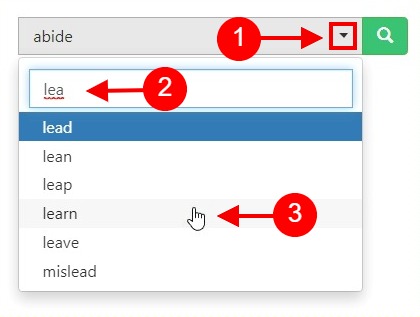
regular verbs & Irregular verbs
Example: eat, ate, eaten
Past Perfect
Future perfect, present - conditional, perfect - conditional.
Travel Verb Forms: Past Tense and Past Participle (V1 V2 V3)
Meaning: to go from one place/city/country to another
Table of Contents
Travel Verb Forms V1 V2 V3 V4 V5
Travel past tense:.
Past Tense of Travel is Traveled .
Example: Sarah Traveled by Train.

Travel Past Participle:
Past Participle Form of Travel is Traveled .
Example: Sarah has Traveled by Train.
Travel Present Participle:
Present Participle Form of Travel is Travelling .
Example: Sarah is Travelling by Train.
Travel 3rd Person Singular:
3rd Person Singular of Travel is Travels .
Example: Sarah Travels by Train.
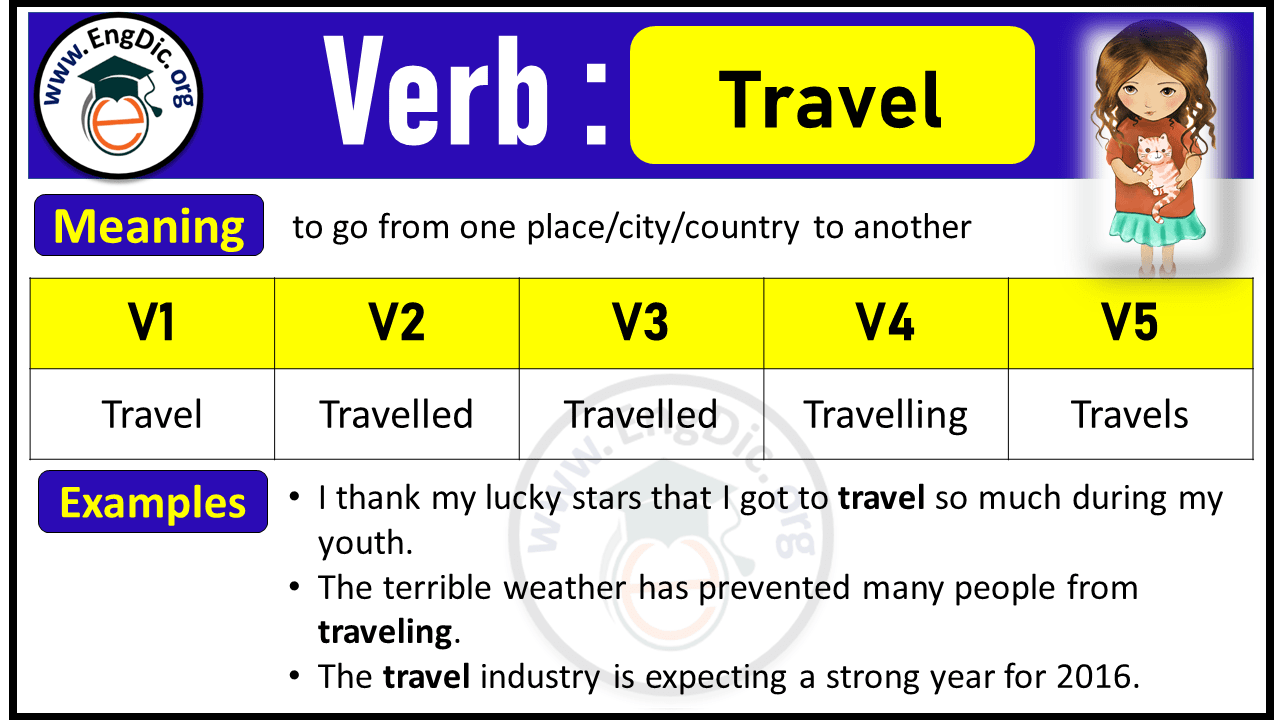
Travel Conjugation
Indefinite / simple present tense.
- I Travel by Train.
- We/You/They Travel by Train.
- He/She/It/Adam Travels by Train.
Present Continuous Tense
- I am Travelling by Train.
- We/You/They are Travelling by Train.
- He/She/It/Adam is Travelling by Train.
Present Perfect Tense
- I have Traveled by Train.
- We/You/They have Traveled by Train.
- He/She/It/Adam has Traveled by Train.
Present Perfect Continuous Tense
- I have been Travelling by Train.
- We/You/They have been Travelling by Train.
- He/She/It/Adam has been Travelling by Train.
Indefinite / Simple Past Tense
- I Traveled by Train.
- We/You/They Traveled by Train.
- He/She/It/Adam Traveled by Train.
Past Continuous Tense
- I was Travelling by Train.
- We/You/They were Travelling by Train.
- He/She/It/Adam was Travelling by Train.
Past Perfect Tense
- I had Traveled by Train.
- We/You/They had Traveled by Train.
- He/She/It/Adam had Traveled by Train.
Past Perfect Continuous Tense
- I had been Travelling by Train.
- We/You/They had been Travelling by Train.
- He/She/It/Adam had been Travelling by Train.
Indefinite / Simple Future Tense
- I will Travel by Train.
- We/You/They will Travel by Train.
- He/She/It/Adam will Travel by Train.
Future Continuous Tense
- I will be Travelling by Train.
- We/You/They will be Travelling by Train.
- He/She/It/Adam will be Travelling by Train.
Future Perfect Tense
- I will have Traveled by Train.
- We/You/They will have Traveled by Train.
- He/She/It/Adam will have Traveled by Train.
Future Perfect Continuous Tense
- I will have been Travelling by Train.
- We/You/They will have been Travelling by Train.
- He/She/It/Adam will have been Travelling by Train.
Past Tense of Travel Phrasal Verbs
Explore Other Verb Forms:
What is the Future Tense of Travel?
Future Tense of Travel is “ will Travel” .
What is the Present Tense of Travel?
Present Tense of Travel is “ Travel + s/es or ing” .
What is the Past Perfect Tense of Travel?
Past perfect tense of take is “ had Traveled ”.
Last updated on May 24th, 2023 at 02:22 am
Related Posts

Output Verb Forms: Past Tense and Past Participle (V1 V2 V3)
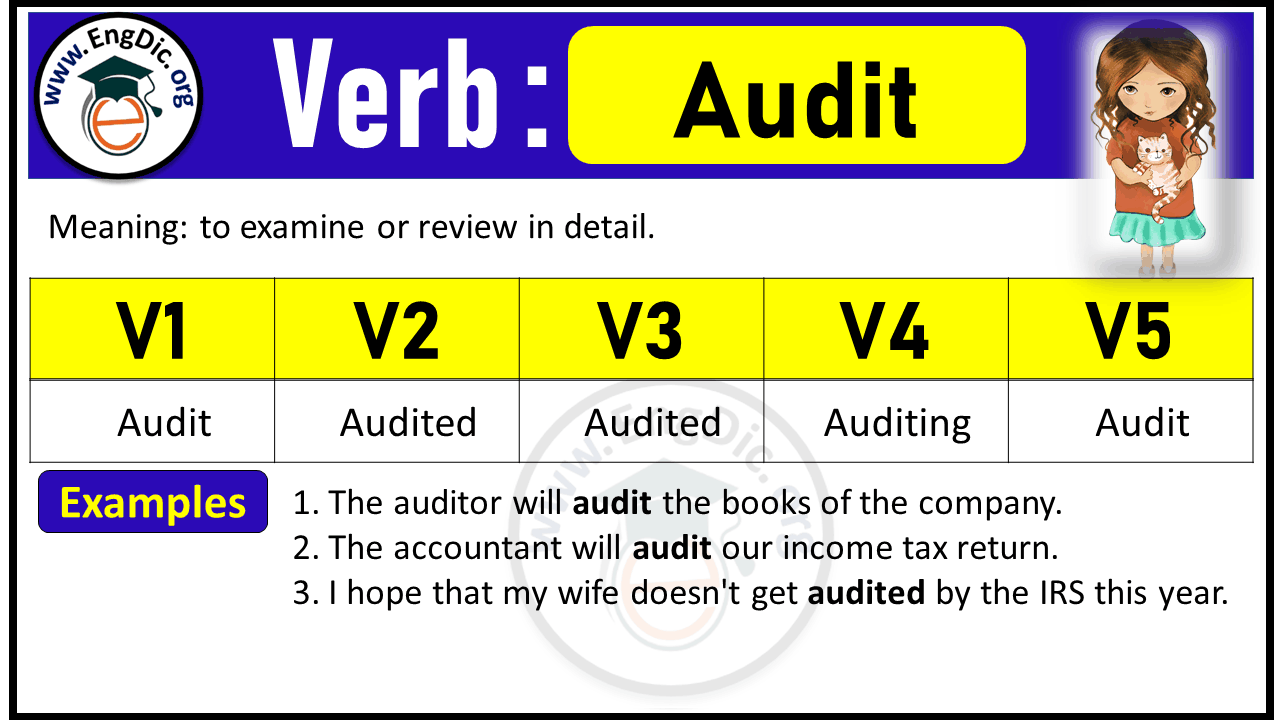
Audit Verb Forms: Past Tense and Past Participle (V1 V2 V3)
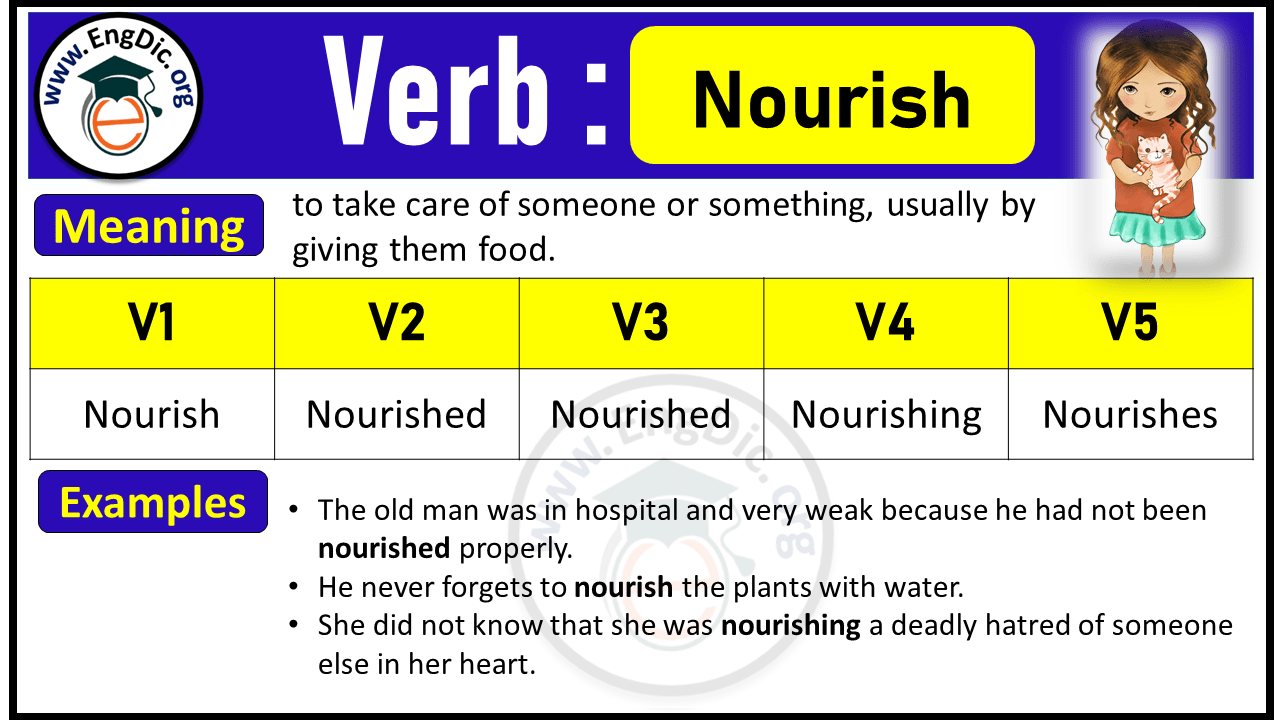
Nourish Verb Forms: Past Tense and Past Participle (V1 V2 V3)
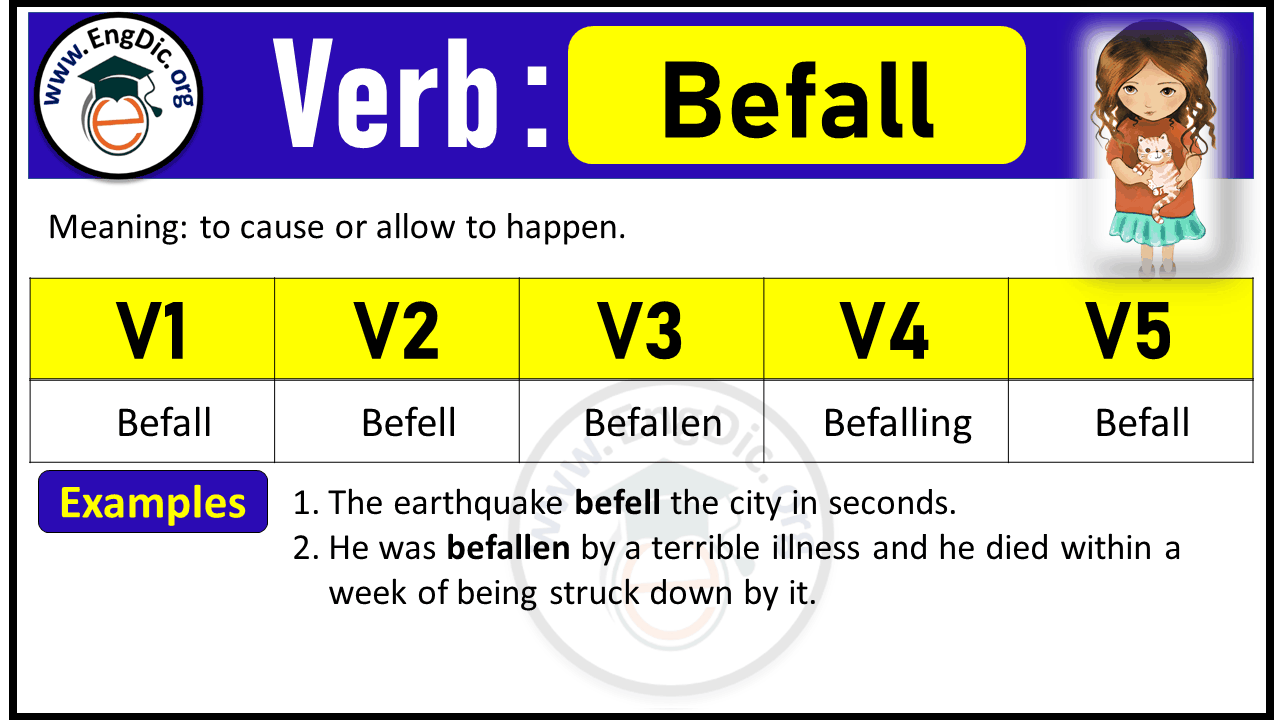
Befall Verb Forms: Past Tense and Past Participle (V1 V2 V3)
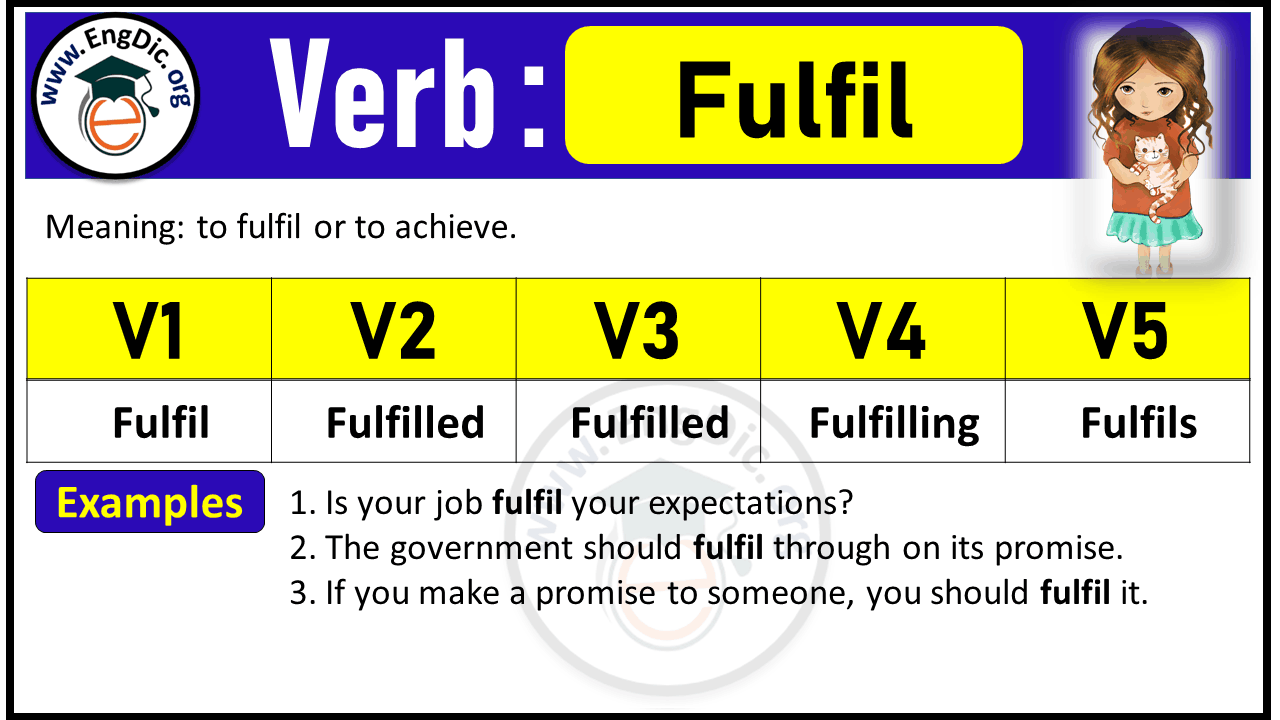
Fulfil Verb Forms: Past Tense and Past Participle (V1 V2 V3)

Say Verb Forms: Past Tense and Past Participle (V1 V2 V3)
About the author.
Hi, I'm USMI, engdic.org's Author & Lifestyle Linguist. My decade-long journey in language and lifestyle curation fuels my passion for weaving words into everyday life. Join me in exploring the dynamic interplay between English and our diverse lifestyles. Dive into my latest insights, where language enriches every aspect of living.
Travel Past Tense: Verb Forms, Conjugate TRAVEL
- commonwealth travelled, us traveled
The past tense of travel is commonwealth travelled, us traveled
The Forms of Travel
Conjugate travel, travel in present simple (indefinite) tense, travel in present continuous (progressive) tense, travel in present perfect tense, travel in present perfect continuous tense, travel in past simple (indefinite) tense, travel in past continuous (progressive) tense, travel in past perfect tense, travel in past perfect continuous tense, travel in future simple (indefinite) tense, travel in future continuous (progressive) tense, travel in future perfect tense, travel in future perfect continuous tense, leave a comment cancel reply.

Englishtivi
Improve Your English Skills | Help You Change Your Life
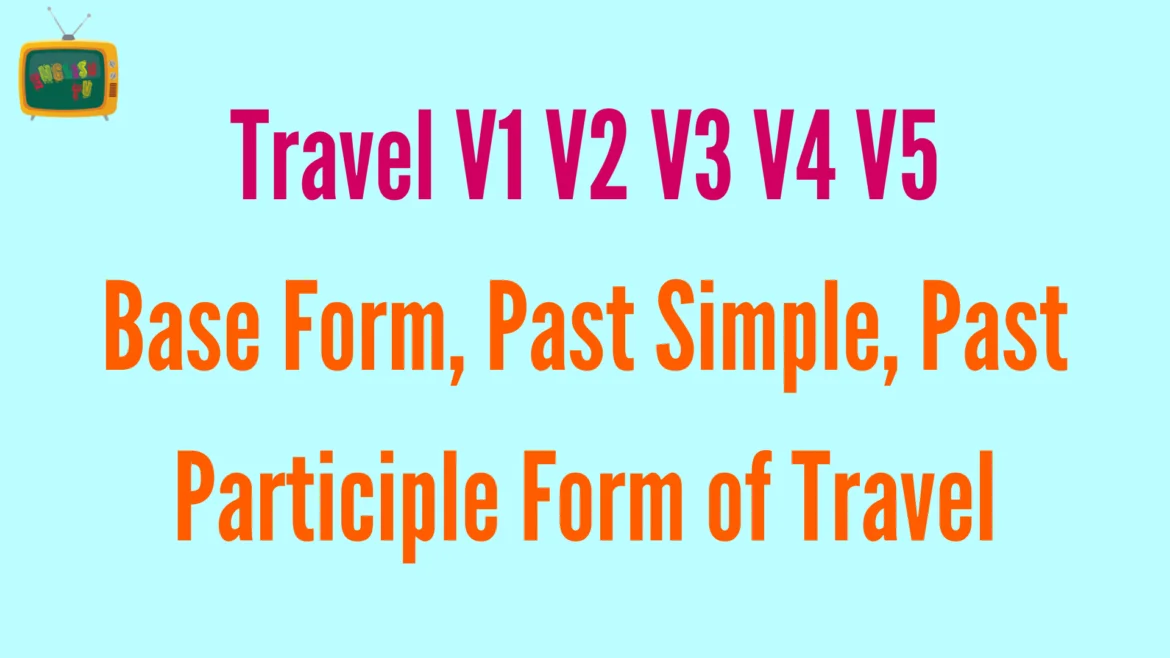
Travel V1 V2 V3 V4 V5 Base Form, Past Simple, Past Participle Form of Travel
Let’s find out with English tivi in the article below.
⏩ Sign Up to Get Bonus 👉 Bybit Review 👉 BingX Review 👉 Bitget Review 👉 MEXC Referral Code 👉 BingX Referral Code 👉 Bitrue Invite Code 👉 WazirX Referral Code 👉 Bybit Referral Code 👉 KuCoin Referral Code 👉 Bitget Referral Code 👉 Huobi Referral Code
👉 Sponsored: Sign Up for an Account and Get a Bonus
See more at: Verbs
Table of Contents
Travel of Definition and Meaning
Travel is a verb that means to make a journey, usually over a long distance
V1 V2 V3 V4 V5 Form of Travel
Travel of past simple v2.
The verb travel is also employed in its V2 form as “ travell e d “ . It is used to indicate the past tense in sentences.
Travel of Past Participle V3
This verb’s V3 form is “ travell e d “ . In the case of past perfect tense or present perfect tense, the word “ travell e d “ is used.
+ In the present perfect tense, the word travel is used ‘ have +’travelled” or ‘ has +’travelled .’
- I, you, and we are used as ‘ have + ‘travelled” subjects.
- He, she, and it are used as ‘ has +”travelled” subjects.
+ If you need to use the past perfect tense, use ‘ had +”travelled” regardless of the subject.
You might also like: ALL the English Grammar Basics You Need
Conjugation of Travel V1 V2 V3 V4 V5
See more at: Vocabulary
Example Sentences with Travel V1 V2 V3 V4 V5
In this section, we will learn about travel sentence examples:
- I travel to work by bus.
- She travelled over 1,000 miles to be at the wedding.
- My parent have travelled to French for 3 months
- I'm travelling in Gia Lai
- He travels in Sa Pa with his friend
Synonym Words For Travel
Synonym of travel word list. Here are a variety of words whose meaning is nearly the synonym of travel :
- peregrinate
Opposite Words For Travel
The antonym of travel word list. Here are some words that have nearly the opposite meaning as travel :
- continue to be
- carry on being
- go on being
- persist in being
You might also like: Best List of Irregular Verbs in English
Some Frequently Asked Questions About T ravel (Verb)
What is the v1 v2 v3 v4 v5 of travel .
The past tense of travel is travell e d . The third-person singular simple present indicative form of travel is travel s . The present participle of travel is travell i ng . The past participle of travel is travelled.
What is the V2 and V3 form of travel ?
+ The V2 and V3 form of travel is “ travell e d “ and “ travell e d “ .
What is the past tense V2 of travel ?
+ The past tense of travel is “ travell e d “.
What is the past tense V3 of travel ?
+ The past participle of travel is “ travell e d “ .
What is the present participle V5 of travel ?
+ The present participle of travel is “ travell i ng ”.
Let’s learn with English TV the structure of the verb Travel V1 V2 V3 V4 V5 : Base Form, Past Simple, Present Continuous and Present Continuous and Present Continuous and Present Continuous forms. We wish you all the best of luck.
Written by:
Jena Sannie 1,505 Posts
Related posts.
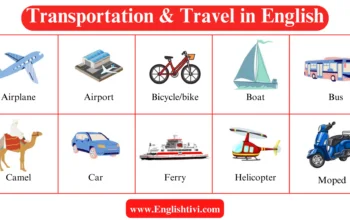
Transportation and travel in English With Pictures

Treasure V1 V2 V3 V4 V5 Base Form, Past Simple, Past Participle Form of Treasure
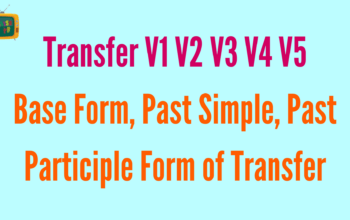
Transfer V1 V2 V3 V4 V5 Base Form, Past Simple, Past Participle Form of Transfer

Past Tense of Travel: Traveling Back in Time
By: Author Oliver
Posted on Last updated: August 12, 2023
Sharing is caring!
Welcome to our article on the past tense of travel! If you’re learning English grammar, you know that understanding verb tenses is an essential part of the language. The past tense is particularly important, as it allows us to talk about events and experiences that have already happened. In this article, we’ll explore the basics of English tenses, give an overview of the past tense, and focus specifically on how to use the past tense when talking about travel.
Travel is one of the most common topics of conversation, and being able to talk about past trips is a great way to connect with others and share experiences. However, using the past tense correctly can be tricky, especially when it comes to irregular verbs and complex sentence structures. In this article, we’ll provide plenty of examples and exercises to help you master the past tense of travel. We’ll also cover some common mistakes to avoid and provide additional resources for further learning.
So whether you’re planning your next trip or just want to improve your English skills, read on to learn everything you need to know about the past tense of travel!
Key Takeaways
- The past tense is essential for talking about past events and experiences, past tense of ‘travel’ is ‘traveled’
- By practicing with examples and exercises, you can improve your use of the past tense of travel and avoid common mistakes.

Past Tense of Travel
Travel is a verb that is commonly used in the past tense. In this section, we will cover the formation and usage examples of the past tense of travel.
To form the past tense of travel, we add “-ed” to the base form of the verb. For example:
- I traveled to Europe last summer.
- She traveled to Asia for business.
- We traveled to South America for vacation.
Simple Past
The simple past is used to describe a completed action in the past. Regular verbs like travel are formed by adding -ed to the base form. For example:
- I traveled to Paris last year.
Past Continuous
The past continuous is used to describe an action that was in progress at a specific point in the past. It is formed by using the past tense of “to be” (was/were) and the present participle (-ing) of the main verb. Here are some examples:
- I was traveling to Paris when I got a call from my boss.
Usage Examples
The past tense of travel is used to talk about a completed action in the past. Here are some examples:
- I traveled to Japan last year and had an amazing time.
- She traveled to Italy for her honeymoon and fell in love with the country.
- We traveled to Mexico for our anniversary and enjoyed the beautiful beaches.
We can also use the past tense of travel to talk about a past habit or routine. For example:
- When I was younger, I traveled to different countries every summer.
- She traveled for work every week and got used to living out of a suitcase.
- We traveled to visit our family every holiday season.
In conclusion, the past tense of travel is formed by adding “-ed” to the base form of the verb and is used to talk about completed actions or past habits. Practice using the past tense of travel in your own sentences to improve your English grammar skills.
Common Mistakes with Past Tense of Travel
If you are learning English, you might be struggling with the past tense of the verb “travel.” Here are some common mistakes people make and how to avoid them.
Mixing Past and Present Tenses
One of the most common mistakes is mixing past and present tenses. For example, saying “I travel to Paris last year” instead of “I traveled to Paris last year.” To avoid this mistake, remember to use the past tense of “travel” when referring to something that happened in the past.
Using the Present Participle
Another mistake is using the present participle instead of the past tense. For example, saying “I am traveling to London last week” instead of “I traveled to London last week.” To avoid this mistake, remember to use the past tense of “travel” when referring to something that happened in the past.
Using the Wrong Auxiliary Verb
Using the wrong auxiliary verb is also a common mistake. For example, saying “I was travel to Rome” instead of “I traveled to Rome.” To avoid this mistake, remember to use the correct auxiliary verb (in this case, “did”) when forming the past tense.
Example Sentences
Here are some example sentences to help you practice using the past tense of “travel” correctly:
- I traveled to Japan last summer.
- She visited her grandparents in Florida last month.
- They took a road trip across the United States.
- We flew to Paris for our honeymoon.
- He backpacked through Europe after college.
Remember, practice makes perfect! Keep practicing using the past tense of “travel” correctly, and soon it will become second nature.
Exercises to Practice Past Tense of Travel
Learning English grammar can be challenging, especially when it comes to mastering the past tense of travel. To help you improve your skills, we have compiled a list of exercises that you can use to practice and perfect your past tense of travel.
Interactive Exercises
Interactive exercises are a great way to practice the past tense of travel. They allow you to engage with the material and receive immediate feedback on your progress. Here are a few interactive exercises you can try:
- Fill in the Blank: In this exercise, you will be given a sentence with a blank space where the past tense verb should go. Your task is to fill in the blank with the correct past tense verb. For example, “I ___ to Paris last year.” The correct answer would be “went.”
- Matching: In this exercise, you will be given a list of past tense verbs and a list of travel-related words. Your task is to match the past tense verb with the correct travel-related word. For example, “flew” would match with “airplane.”
Written Exercises
Written exercises are another great way to practice the past tense of travel. They allow you to focus on the material and practice at your own pace. Here are a few written exercises you can try:
- Sentence Writing: In this exercise, you will be given a travel-related word, and your task is to write a sentence using the correct past tense verb. For example, “train” could be used in the sentence, “I ___ to New York on a train.”
- Paragraph Writing: In this exercise, you will be given a prompt related to travel, and your task is to write a paragraph using the correct past tense verbs. For example, “Write a paragraph about your last vacation.” You could write, “Last summer, I ___ to Hawaii with my family. We ___ on the beach, ___ in the ocean, and ___ at some amazing restaurants.”
By practicing these exercises, you will improve your understanding and mastery of the past tense of travel. Keep practicing, and before you know it, you’ll be a pro at English grammar!
Frequently Asked Questions
What is the past tense of travel?
The past tense of travel is “traveled” in American English and “travelled” in British English. Both spellings are correct, but American English tends to drop the second “l” in the past tense and past participle forms of the verb.
Is it spelled Travelled or traveled?
As mentioned above, both spellings are correct. The difference in spelling is due to the variation in American and British English.
Which is correct travel or travelling?
Both “travel” and “travelling” are correct, but “traveling” is the preferred spelling in American English, while “travelling” is the preferred spelling in British English.
What’s the difference between travel and Travelled?
“Travel” is the present tense of the verb, while “travelled” is the past tense. The difference between the two is the time frame in which the action occurs.
What is the V2 form of travel?
The V2 form of travel is “traveled” in American English and “travelled” in British English.
What is the V3 form of travel?
The V3 form of travel is “traveled” in American English and “travelled” in British English.
In summary, the past tense of travel is “traveled” in American English and “travelled” in British English. Both spellings are correct, and the difference in spelling is due to the variation in American and British English. Additionally, “traveling” is the preferred spelling in American English, while “travelling” is the preferred spelling in British English.
The past tense of travel is \"traveled\" in American English and \"travelled\" in British English. Both spellings are correct, but American English tends to drop the second \"l\" in the past tense and past participle forms of the verb.
"}},{"@type":"Question","name":"Is it spelled Travelled or traveled?","acceptedAnswer":{"@type":"Answer","text":"
"}},{"@type":"Question","name":"Which is correct travel or travelling?","acceptedAnswer":{"@type":"Answer","text":"
Both \"travel\" and \"travelling\" are correct, but \"traveling\" is the preferred spelling in American English, while \"travelling\" is the preferred spelling in British English.
"}},{"@type":"Question","name":"What's the difference between travel and Travelled?","acceptedAnswer":{"@type":"Answer","text":"
\"Travel\" is the present tense of the verb, while \"traveled\" is the past tense. The difference between the two is the time frame in which the action occurs.
"}},{"@type":"Question","name":"What is the V2 form of travel?","acceptedAnswer":{"@type":"Answer","text":"
The V2 form of travel is \"traveled\" in American English and \"travelled\" in British English.
"}},{"@type":"Question","name":"What is the V3 form of travel?","acceptedAnswer":{"@type":"Answer","text":"
The V3 form of travel is \"traveled\" in American English and \"travelled\" in British English.
In summary, the past tense of travel is \"traveled\" in American English and \"travelled\" in British English. Both spellings are correct, and the difference in spelling is due to the variation in American and British English. Additionally, \"traveling\" is the preferred spelling in American English, while \"travelling\" is the preferred spelling in British English.
- Recent Posts
- Plural of Safe: What It Is and How to Use It Correctly - October 3, 2023
- Purple Color Names: Different Hues of Purple - October 2, 2023
- Addition Transition Words for Clear and Cohesive Writing - September 30, 2023
Related posts:
- Past Tense of Buy: How to Use them Correctly in English Grammar
- Mastering English Grammar: The Definitive Guide to Understanding the Past Tense of Cost
- Past Tense of Drag: Dragged Through Time
- Hoped or Hoped For? Mastering the Past Tense of Hope with Ease
- Cambridge Dictionary +Plus
Definition of travel – Learner’s Dictionary
Your browser doesn't support HTML5 audio
travel verb ( MAKE A JOURNEY )
- It costs less if you travel at the weekend .
- We hired a car so we could travel further afield .
- I have travelled extensively in Europe .
- They travelled the length and breadth of Scotland together.
- It's a film about the adventures of two friends travelling across Africa .
travel verb ( MOVE )
- Space travel may become very common in the near future .
- The price includes travel and accommodation .
- The travel company completely fouled up our holiday .
- They offer a 10 percent discount on rail travel for students .
- Over the years I've lost my taste for travel.
(Definition of travel from the Cambridge Learner's Dictionary © Cambridge University Press)
Translations of travel
Get a quick, free translation!

Word of the Day
doctor's orders
used to mean that you must do something because your doctor has told you to do it

Paying attention and listening intently: talking about concentration

Learn more with +Plus
- Recent and Recommended {{#preferredDictionaries}} {{name}} {{/preferredDictionaries}}
- Definitions Clear explanations of natural written and spoken English English Learner’s Dictionary Essential British English Essential American English
- Grammar and thesaurus Usage explanations of natural written and spoken English Grammar Thesaurus
- Pronunciation British and American pronunciations with audio English Pronunciation
- English–Chinese (Simplified) Chinese (Simplified)–English
- English–Chinese (Traditional) Chinese (Traditional)–English
- English–Dutch Dutch–English
- English–French French–English
- English–German German–English
- English–Indonesian Indonesian–English
- English–Italian Italian–English
- English–Japanese Japanese–English
- English–Norwegian Norwegian–English
- English–Polish Polish–English
- English–Portuguese Portuguese–English
- English–Spanish Spanish–English
- English–Swedish Swedish–English
- Dictionary +Plus Word Lists
- travel (MAKE A JOURNEY)
- travel (MOVE)
- sb's travels
- Translations
- All translations
Add travel to one of your lists below, or create a new one.
{{message}}
Something went wrong.
There was a problem sending your report.
- English Tense Converter
- Basic English
- Parts of speech
- Daily tasks
- Verb of the day
- Quiz of the day
- Top 500 verbs list
- Privacy Policy
- Terms and conditions

Travel verb forms - Learn English Free Online | LTSenglish.com
Travel verb forms.
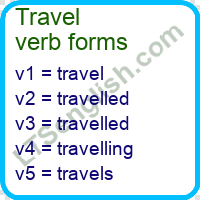
Travel present tense
Travel past tense, travel future tense, simple present tense of travel, present continuous tense of travel, present perfect tense of travel, present perfect continuous tense of travel, simple past tense of travel, past continuous tense of travel, past perfect tense of travel, past perfect continuous tense of travel, simple future tense of travel, future continuous tense of travel, future perfect tense of travel, future perfect continuous tense of travel.

© Copyright 2020 ltsenglish.com

IMAGES
VIDEO
COMMENTS
Conjugate the English verb travel: indicative, past tense, participle, present perfect, gerund, conjugation models and irregular verbs. Translate travel in context, with examples of use and definition. ... Other forms: travel oneself/not travel. Contractions. in the U.K. spelling we double up the 'l' in preterite and participle endings.
Travel V1 V2 V3 V4 V5, Past Simple and Past Participle Form of Travel Verb; Travel Meaning; trip, journey, voyage, peregrination, eyre V1, V2, V3, V4, V5 Form of Travel Base Form Past Form Past Participle travel travelled travelled Base Form s/es/ies ing Form travel travels travelling Synonym for Travel trip journey voyage peregrination eyre passage headway sightseeing excursion tour outing ...
This is a reference page for travel verb forms in present, past and participle tenses. Find conjugation of travel. Check past tense of travel here. website for synonyms, antonyms, verb conjugations and translations ... PastTenses is a database of English verbs. One can check verbs forms in different tenses. Use our search box to check present ...
English verb TO TRAVEL conjugated in all forms, with full audio, irregular highlighting, negative forms and contractions.
verbs ending in -e: like. travel - model verb Verbs that follow this model: backpedal barrel bedevil ... *Blue letters in conjugations are irregular forms. *Red letters in conjugations are exceptions to the model. Report a problem. travel 'travel' is the model of its conjugation. ...
travel: [verb] to go on or as if on a trip or tour : journey. to go as if by traveling : pass. associate. to go from place to place as a sales representative or business agent.
Some wines do not travel well. [intransitive] travel (well) (of a book, an idea, etc.) to be equally successful in another place and not just where it began. These recipes travel well and don't require unusual ingredients or equipment. Some writing travels badly (= is not successful) in translation. [intransitive] to go fast. Their car can ...
Learn the three forms of the English verb 'travel'. the first form (V1) is 'travel' used in present simple and future simple tenses. the second form (V2) is 'travelled (BrE)', 'traveled (AmE)' used in past simple tense. the third form (V3) is 'travelled (BrE)', 'traveled (AmE)' used in present perfect and past perfect tenses.
Conjugation of the verb Travel in all tenses: future, present and past. 🎮 Conjugation trainer for memorizing forms. ... Verb forms. Base Form Past Simple Past Participle Gerund ; travel: traveled: traveled: travelled [ˈtrævl] [ˈtrævəld] [ˈtrævəld] [ˈtrævld] [ˈtræv(ə)l] [ˈtrævəld]
1 [intransitive, transitive] to go from one place to another, especially over a long distance to travel around the world I go to bed early if I'm traveling the next day. I love traveling by train. We always travel first class. We traveled to California for the wedding. When I finished college I went traveling for six months (= spent time visiting different places). travel something He traveled ...
Visit. Travelled is the past tense of the word travel. Travelled is the past participle of the word travel. travel past form, verb forms, v1v2v3, Inf.
Conjugation is the creation of derived forms of a verb from its principal parts by inflection (alteration of form according to rules of grammar). For instance, the verb "break" can be conjugated to form the words break, breaks, broke, broken and breaking. The term conjugation is applied only to the inflection of verbs, and not of other parts of speech (inflection of nouns and adjectives is ...
Look up English verb forms - over 5000 verbs! Excellent resource for students and teachers. verb123.com Home Notes About. Example: eat, ate, eaten ...
Travel Present Participle: Present Participle Form of Travel is Travelling. Example: Sarah is Travelling by Train. Travel 3rd Person Singular: 3rd Person Singular of Travel is Travels. Example: Sarah Travels by Train. Travel Conjugation Indefinite / Simple Present Tense. I Travel by Train. We/You/They Travel by Train. He/She/It/Adam Travels by ...
Travel in Past Continuous (Progressive) Tense. Singular. Plural. I was commonwealth travelling, us traveling. We were commonwealth travelling, us traveling. You were commonwealth travelling, us traveling. You were commonwealth travelling, us traveling. He/She/It was commonwealth travelling, us traveling. They were commonwealth travelling, us ...
Travel V1 V2 V3 V4 V5 is one of the verbs that are used very commonly in English tests as well as in everyday communication. Also, because it's an irregular verb, travel doesn't follow the regular rule.The verb "travel" has five different forms: base form, past simple, past participle form, present perfect, and present perfect participle.
From Longman Dictionary of Contemporary English Related topics: Other sports travel trav‧el 1 / ˈtræv ə l / S2 W2 verb (travelled, travelling British English, traveled, traveling American English) 1 journey TRAVEL a) [intransitive] to go from one place to another, or to several places, especially ones that are far away Someday I'd like to travel abroad. travel to/across/through/around ...
Past Tense of Travel. Travel is a verb that is commonly used in the past tense. In this section, we will cover the formation and usage examples of the past tense of travel. Formation. To form the past tense of travel, we add "-ed" to the base form of the verb. For example: I traveled to Europe last summer. She traveled to Asia for business.
TRAVEL definition: 1. to make a journey, usually over a long distance: 2. If something travels well/badly, it…. Learn more.
Travel Modal auxiliary verbs Learn English Free Online Present Past Future simple perfect continuous Tenses learn spoken English course through online classes
TRAVEL meaning: 1. to make a journey: 2. If light, sound, or news travels, it moves from one place to another: 3…. Learn more.
Travel Verb Forms. Base form (v1) Travel. Past form (v2) Travelled. Past Participle (v3) -ed form. Travelled. Present Participle (v4)